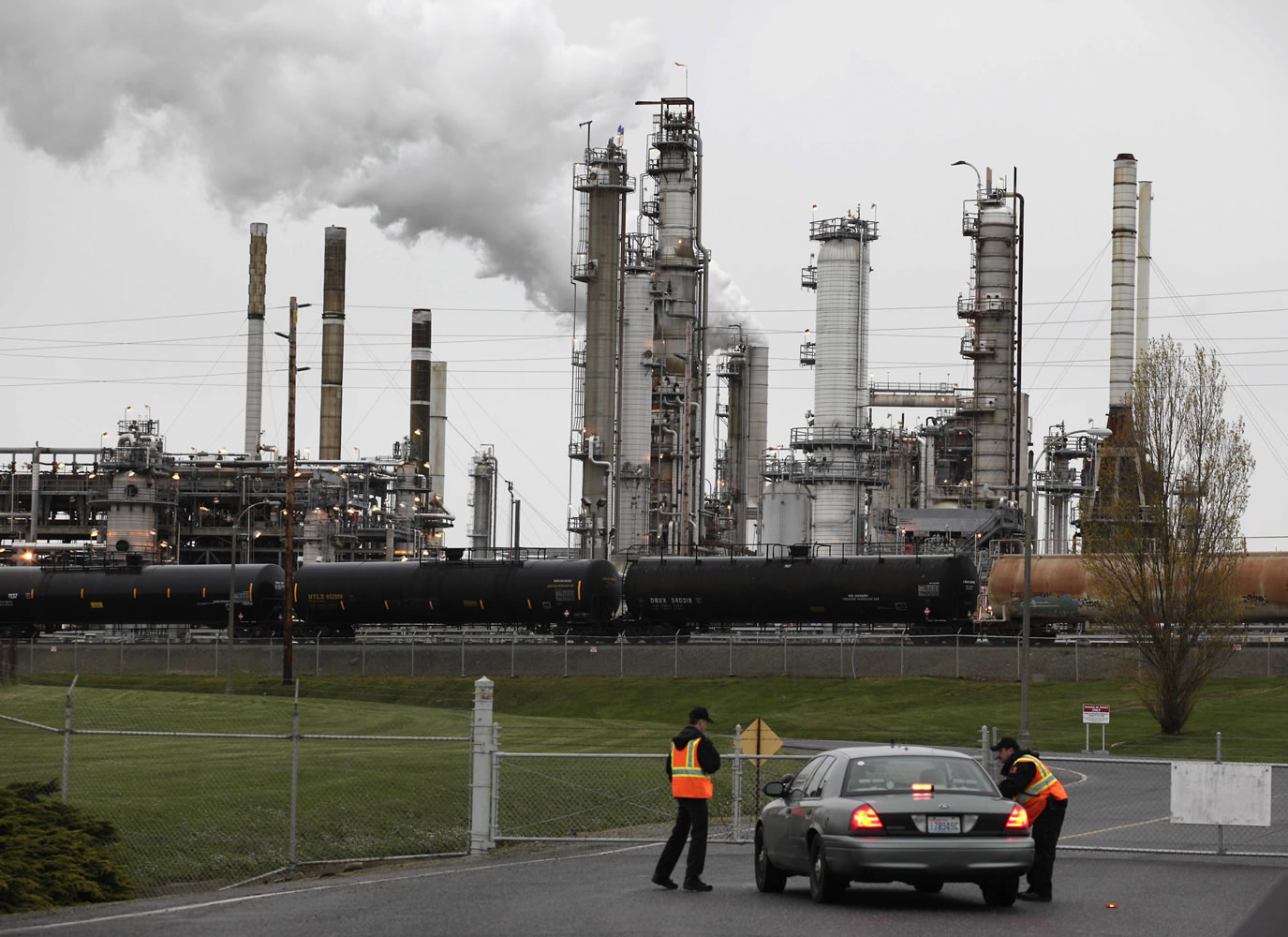SEATTLE — Federal chemical safety investigators are recommending tougher state and federal oil refinery oversight after a 2010 explosion and fire at a Tesoro Corp. refinery in Anacortes that killed seven workers.
In the draft report released late Wednesday, the U.S. Chemical Safety Board says Washington state should implement a more proactive safety system at refineries to prevent future accidents.
It also calls on the U.S. Environmental Protection Agency to work with the industry to come up with a new regulation requiring chemical facilities to make their operations inherently safer, such as replacing a material with one that’s less hazardous or reducing the amount of hazardous material stored and used. It also recommends that state regulators audit all petroleum refineries in the state to prevent the kind of equipment failure that occurred at Tesoro’s facility.
The April 2, 2010, blast about 70 miles north of Seattle, was the deadliest refinery incident in the U.S. since a 2005 explosion killed 15 people and injured 180 at a BP refinery in Texas City, Texas.
“The report is a clarion call for refinery safety reform,” said Rafael Moure-Eraso, the board chairman said in a statement Wednesday.
In a statement of its own, Tesoro said it “deeply regrets the incident of that day.”
“We respectfully disagree with several findings in the draft report and, most importantly, take exception to CSB’s inaccurate depiction of our process safety culture,” the company said. “However, despite any disagreements regarding the draft report, Tesoro anticipates discussing the CSB’s recommendations with the agency once the report is finalized and will consider them in light of the steps we have taken and are continuing to take to improve the safety of our facilities.”
The Chemical Safety Board, an independent federal agency charged with investigating industrial chemical accidents, presented its findings and recommendations Thursday night in Anacortes. The board had initially planned a vote at that time on whether to finalize the report, but last week it changed its public meeting to a listening session with no board action.
The public will have 45 days to comment on the draft report before it is finalized.
Members of the state’s congressional delegation have criticized the slow pace of the probe, and Rep. Rick Larsen, a Democrat whose district includes Anacortes, recently lashed out at the board about the change to Thursday’s meeting.
Investigators found that the Anacortes blast occurred when a nearly 40-year-old heat exchanger ruptured as workers were putting a parallel bank of heat exchangers back into service after cleaning. The vapors ignited, causing an explosion and an intense fire that burned for more than three hours.
The report found that both Tesoro and Shell Oil Co., which formerly owned the refinery, “had many opportunities to prevent the damage” caused to the equipment long before it failed on April 2010.
Investigators also found gaps in state and federal regulations, and recommended the state adopt new regulations based on the so-called “safety case” system, which would require companies to demonstrate that they have reduced risks as much as possible. The approach used in Europe requires that refineries analyze and document all major hazards and the effective control methods put in place to reduce those risks, and that regulators review and verify that it has been done.
It also proposed safety changes to the American Petroleum Institute and Tesoro.
The report concluded that the frequent occurrence of refinery accidents showed the pressing need to examine the current regulatory structure.
But earlier this month, the board voted 2-1 to postpone approving that tougher refinery safety system as it was probing a massive 2012 fire at a Chevron Corp. refinery in Northern California. They directed staff to make changes in 120 days.
State regulators determined in 2010 that the Anacortes accident was preventable and fined Texas-based Tesoro $2.39 million. It cited the company for 39 willful and five serious violations of state workplace safety and health regulations.
Tesoro is appealing the decision to a state insurance board.



